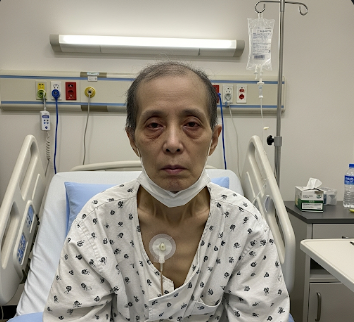Overview
Neutropenia is a medical condition characterized by a low count of neutrophils, a type of white blood cell that plays a crucial role in fighting infections. Neutrophils are part of the body’s first line of defense against bacteria, fungi, and other pathogens, and a decrease in their number can increase the risk of serious infections.
In Korea, patients with neutropenia are assessed in hematology clinics for underlying causes, severity, and risk of infection. Management includes monitoring, medications, and preventive strategies to reduce complications.
Key Facts
➤ Neutropenia is defined as a neutrophil count below 1,500 cells/μL; severe neutropenia is below 500 cells/μL.
➤ Can be acute or chronic, temporary or persistent.
➤ Commonly caused by infections, medications, autoimmune conditions, or bone marrow disorders.
➤ Increases the risk of infections, which can become life-threatening if untreated.
➤ In Korea, neutropenia management focuses on identifying causes, preventing infection, and timely treatment.
What is Neutropenia?
Neutropenia occurs when the body produces fewer neutrophils than normal or loses them faster than they can be replenished.
➔ Types of neutropenia include:
- Mild – usually 1,000–1,500 cells/μL, may not cause symptoms.
- Moderate – 500–1,000 cells/μL, increased infection risk.
- Severe – <500 cells/μL, high risk of life-threatening infections.
Causes may involve bone marrow suppression, autoimmune destruction, or increased neutrophil consumption.
Symptoms Related to Neutropenia
➤ Frequent or severe infections, often bacterial or fungal.
➤ Fever, which may be the only sign of infection.
➤ Mouth sores, ulcers, or gum infections.
➤ Sore throat, cough, or respiratory infections.
➤ Skin infections, abscesses, or cellulitis.
➤ Fatigue or malaise due to ongoing infection.
Some patients may remain asymptomatic until infection develops.
Causes / Possible Causes
Bone Marrow Disorders
➤ Aplastic anemia – bone marrow fails to produce enough blood cells.
➤ Leukemia or myelodysplastic syndromes – abnormal cell production.
➤ Chemotherapy or radiation therapy – suppress bone marrow activity.
Infections
➤ Viral infections – HIV, hepatitis, or influenza.
➤ Bacterial infections – can temporarily consume neutrophils.
Autoimmune Causes
➤ Autoimmune neutropenia – antibodies destroy neutrophils.
➤ Systemic lupus erythematosus (SLE) – may cause low neutrophil counts.
Medications
➤ Chemotherapy agents, antibiotics, or antipsychotics.
➤ Some immunosuppressive drugs.
Nutritional Deficiencies
➤ Vitamin B12 or folate deficiency affecting blood cell production.
Congenital Causes
➤ Inherited neutropenia syndromes – e.g., cyclic neutropenia or Kostmann syndrome.
Risk Factors
➤ Chemotherapy or radiotherapy recipients.
➤ Autoimmune disease patients.
➤ Chronic infections such as HIV or hepatitis.
➤ Nutritional deficiencies, especially B12 or folate.
➤ Certain medications known to suppress bone marrow.
➤ Congenital or hereditary disorders affecting neutrophil production.
Complications
If untreated, neutropenia can lead to:
➤ Severe infections, which may progress rapidly.
➤ Sepsis, a life-threatening systemic infection.
➤ Delayed wound healing due to impaired immunity.
➤ Hospitalization for intravenous antibiotics and supportive care.
➤ Potential organ failure in extreme cases of uncontrolled infection.
When Should I See My Doctor?
Immediate medical attention is required if:
➤ Neutropenia is severe (<500 cells/μL).
➤ Fever develops, even low-grade, as it may indicate infection.
➤ Persistent or recurrent infections occur.
➤ You have recent chemotherapy or immunosuppressive therapy.
➤ Symptoms include mouth sores, respiratory distress, or unusual skin infections.
Care and Treatment
Lifestyle and Home Measures
➤ Practice strict hygiene, including handwashing and avoiding sick contacts.
➤ Maintain healthy nutrition, focusing on foods that support immunity.
➤ Avoid raw or undercooked foods to reduce infection risk.
➤ Monitor temperature regularly, reporting fever immediately.
➤ Stay up-to-date with vaccinations, as advised by your doctor.
Medical Treatments
➤ Granulocyte colony-stimulating factor (G-CSF) – stimulates neutrophil production.
➤ Antibiotics or antifungals for infections.
➤ Treatment of underlying causes, e.g., adjusting medications or managing autoimmune disorders.
➤ Hospitalization for severe infections or febrile neutropenia.
➤ Bone marrow transplantation in selected cases of congenital or severe neutropenia.
Preventive Measures
➤ Regular blood tests to monitor neutrophil counts.
➤ Avoiding crowded places or infectious exposures.
➤ Early intervention for infections or fever.
➤ Managing nutritional deficiencies and chronic illnesses.
Treatment Options in Korea
Korea provides advanced care for neutropenia, including:
Diagnostic Services
➤ Complete blood count (CBC) and differential to monitor neutrophils.
➤ Bone marrow examination for structural or functional abnormalities.
➤ Screening for viral infections, autoimmune disorders, or nutritional deficiencies.
➤ Genetic testing for congenital neutropenia syndromes.
Therapies and Supportive Care
➤ Granulocyte colony-stimulating factor (G-CSF) therapy to boost neutrophil counts.
➤ Hospital-based intravenous antibiotics for infections.
➤ Hematology consultation for management of bone marrow disorders.
➤ Patient education on infection prevention and lifestyle modifications.
➤ Integrated care involving hematologists, infectious disease specialists, and nutritionists.
✅ In summary: Neutropenia is a reduction in neutrophil count that increases susceptibility to infections. While causes range from medications and infections to autoimmune and congenital disorders, timely diagnosis and management in Korea ensure infection prevention, treatment of underlying causes, and supportive care to maintain health and quality of life.













